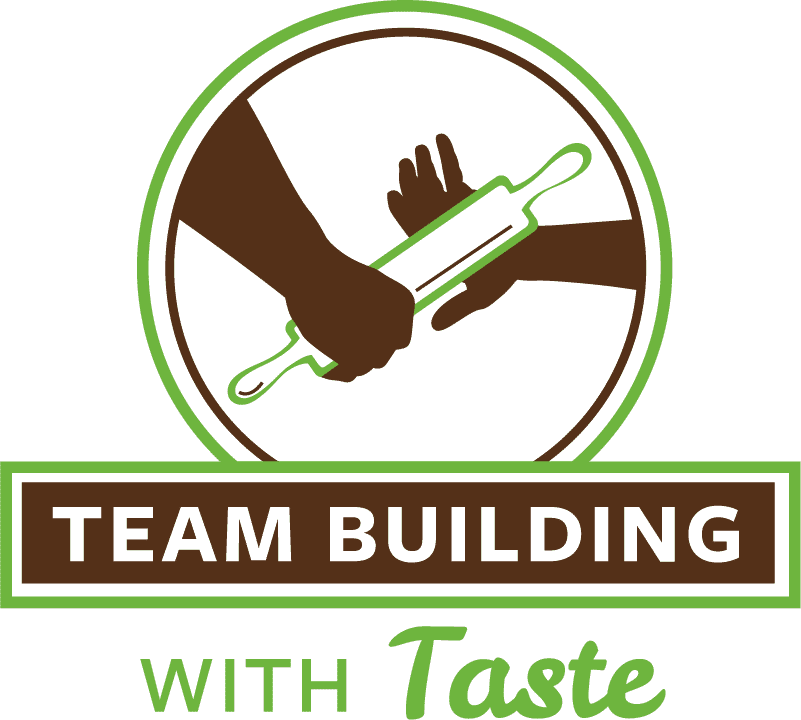Why Team-Build in a Kitchen?
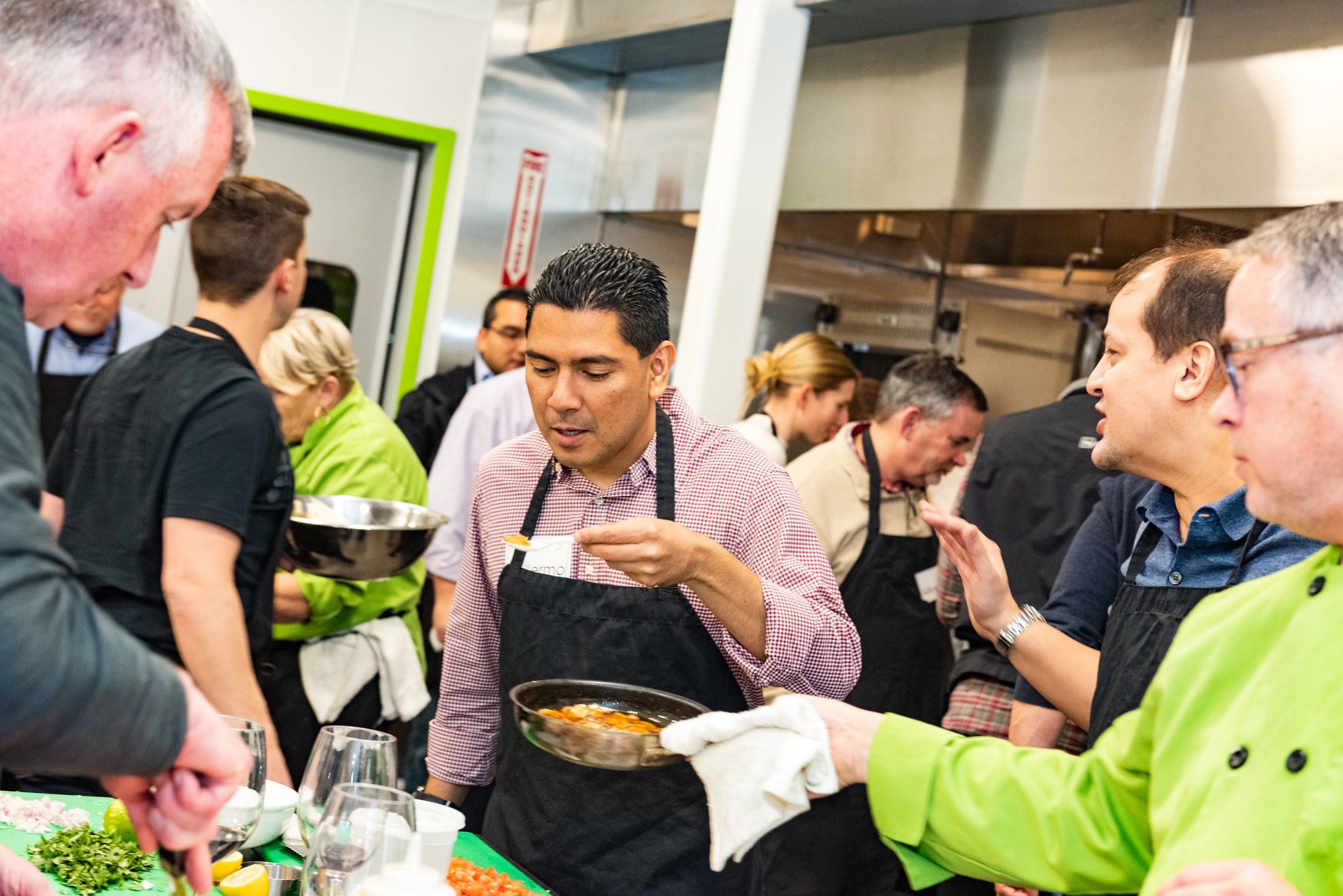
Why Choose Culinary Team Building?
Here at Team Building with Taste, we get a lot of questions about team building cooking classes. Generally, they fall along these lines:
“What if I don’t know how to cook?”
“Will the food be any good?”
“Will there be enough to eat?”
“We are a bunch of macho sales guys. Cooking, seriously?”
Let’s start with the obvious advantages of team building cooking classes:
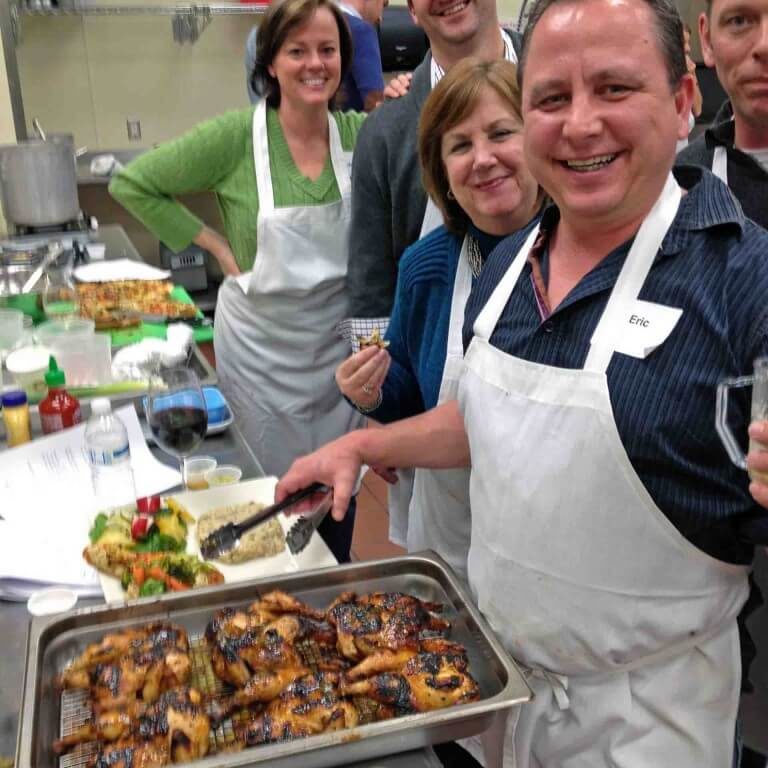
Kitchens are nurturing places.
Most people have fond memories of them– and food generally brings out the best in people. If you really want to get to know someone, chop an onion next to them.
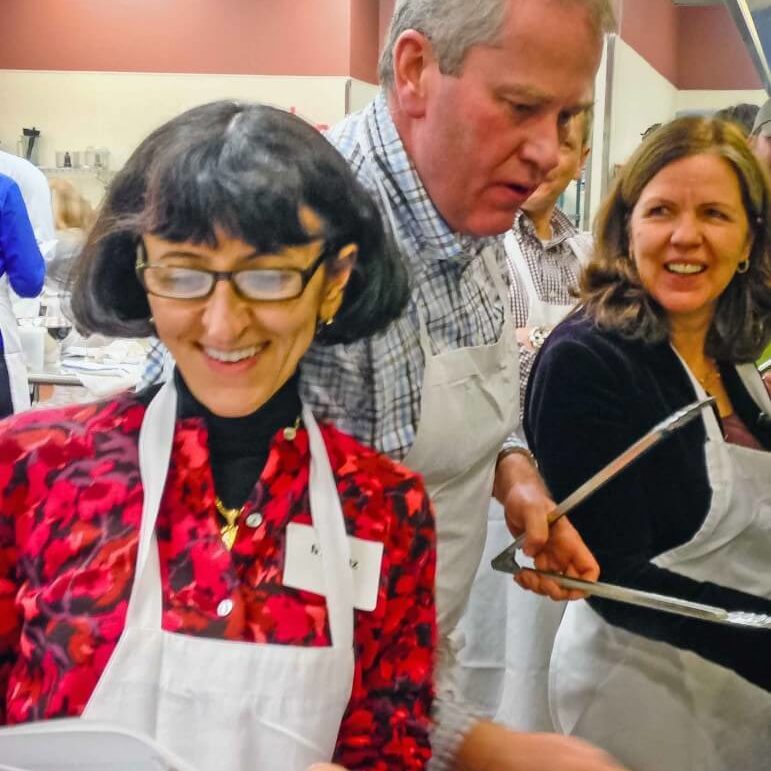
You don’t have to be an athlete to enjoy yourself
One of the best things about culinary team building is you don’t have to be an athlete or touch anybody! There are no ropes, golf clubs or trust falls involved. In fact, you don’t even have to know how to cook.
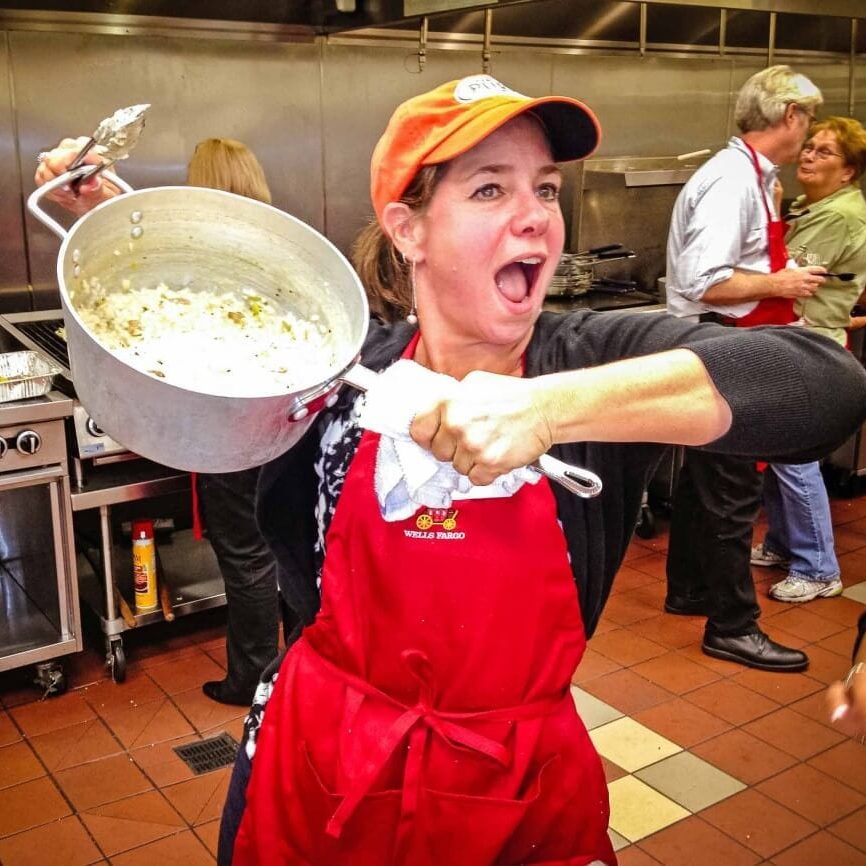
Cooking as a team is energizing
Recent articles in Fast Company and the Harvard Business Review describe how hard-charging startups are discovering the benefits of culinary team building and increasingly turning to cooking “off-sites” as their main team building activity. An HR executive at one of these companies declared, “Cooking lines up with the way we work.”
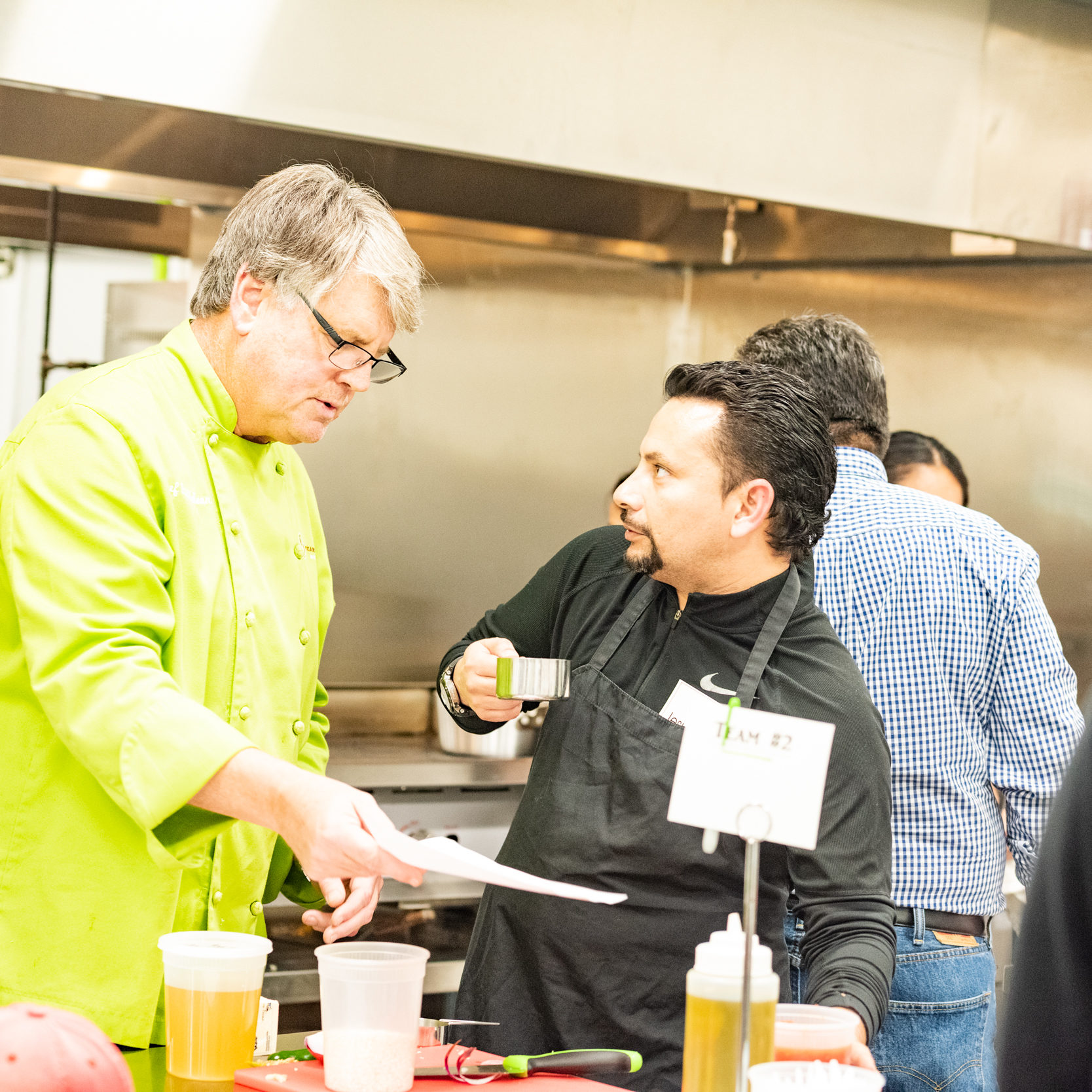
We provide chefs to guide
each team. That means the food will be good—and there will be plenty of it! You can be as actively engaged in the cooking process as you want. If you simply want to be the designated “chopper,” that’s fine. Maybe you’re artistic and would like to focus on plating. Perhaps you’re a good presenter and can be the team’s “pitchman.” Or, maybe you’d just like to have a few sips of wine and enjoy the great food. All options are open to you.
Not macho enough? Hah.
We dare you to bring your best game to the kitchen.
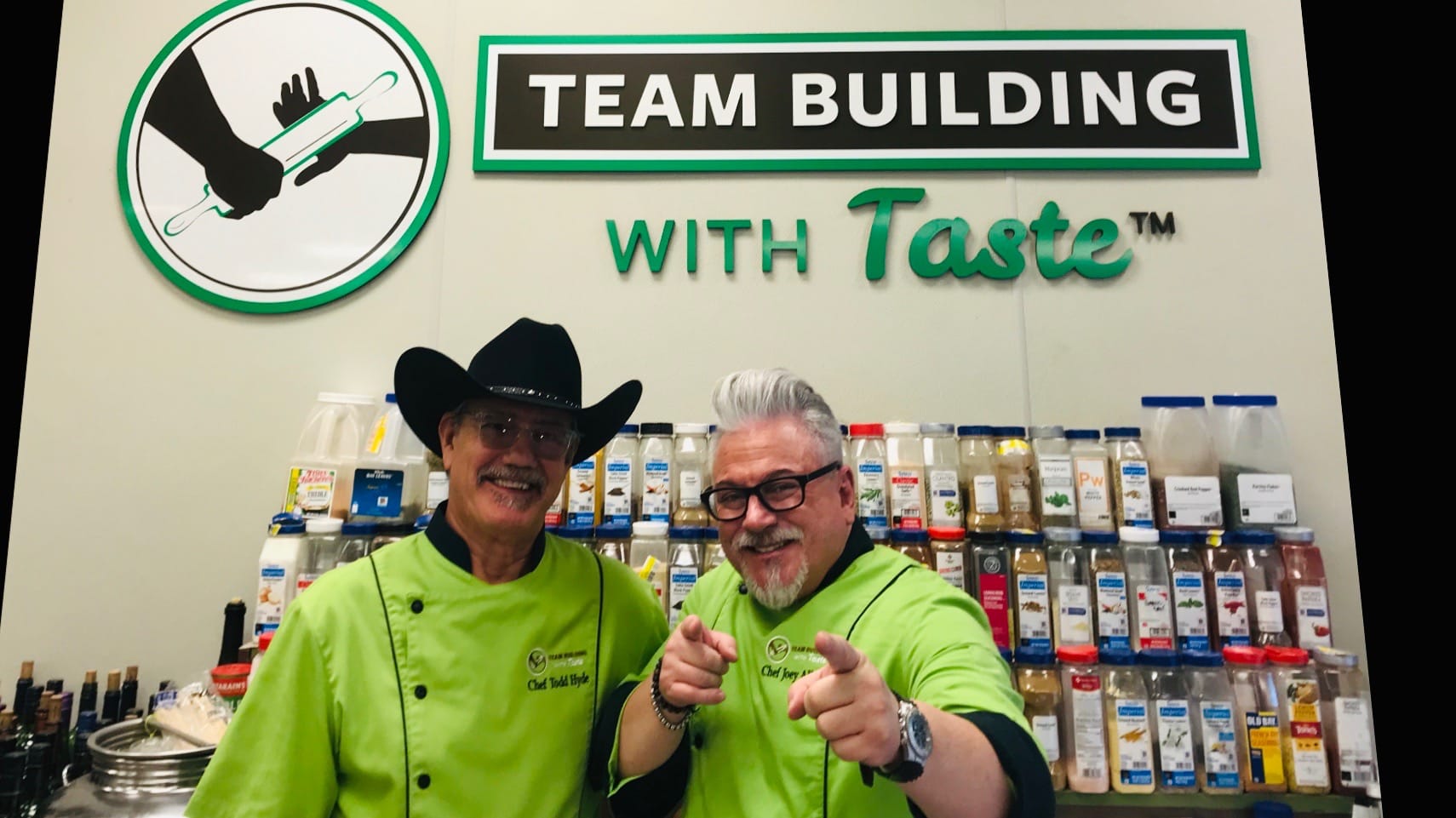
Not macho enough? Hah.
We dare you to bring your best game to the kitchen.
Walk into any firehouse in America and check out the quality of the food. Cooking together is the team building activity of choice for firefighters. In fact, Cornell researchers investigated how shared meals among city firefighters built greater collaboration, communication, and team performance. Using interviews and surveys of firefighters and supervisors, they were able to show that firefighters who cooked and ate meals together scored higher on surveys measuring cooperative behavior and work-group performance.
